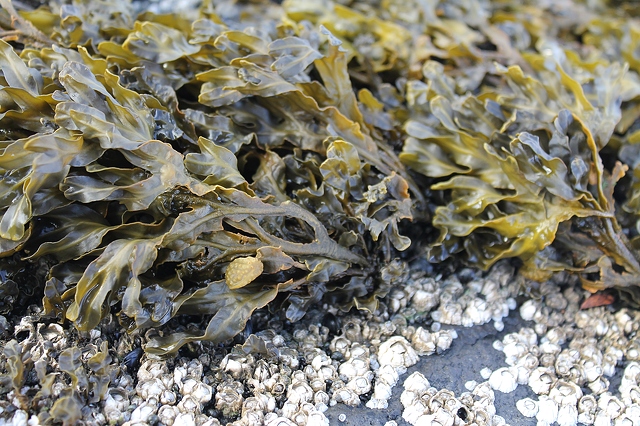 The vessel will be used in commercial seaweed production, and the concept is currently being developed by researchers in Trondheim in close collaboration with business partners from a variety of sectors.
The vessel will be used in commercial seaweed production, and the concept is currently being developed by researchers in Trondheim in close collaboration with business partners from a variety of sectors.
The vessel, which is still only on the drawing board, will be designed for use during all stages of marine seaweed cultivation. This means that it will be equipped for all operations from the installation of seaweed cultivation facilities, to the transport and sowing of seaweed seedlings and the harvesting and transport of fully-grown plants.
“The driving forces behind this project are the demands of an ever-growing global population for higher levels of exploitation of the oceans in food production. Seaweeds are regarded as an important contribution towards meeting these demands”, says Andreas Myskja Lien, a research scientist at SINTEF.
Commercial seaweed production in Norway currently has a turnover of NOK 1,200 million, primarily linked to wild algae, and provides jobs for about 400 people. This is estimated to increase to NOK 40,000 million by 2050.
The new vessel concept will help seaweed cultivation become more efficient, enabling it to be scaled up. Currently, many operations, such as sowing and harvesting, are carried out manually.
“Successful upscaling is necessary if we are to create a new and adequately profitable industry”, says Myskja Lien. “A specially designed vessel is essential if we are to make cultivation and harvesting efficient enough to facilitate large-scale seaweed production in Norway”, he says.
Currently, sugar kelp is the main species cultivated in Norway, but this vessel can be utilised in all forms of industrial-scale seaweed cultivation.
The concept involves a cross-disciplinary approach and development will take place in collaboration with leading technology companies in the fields of fisheries, aquaculture, agriculture and the offshore sector. The applications of seaweed products are very wide-ranging, from food for human consumption, to medicines, bioplastics, animal feed, fertilisers and biofuels.
“An important goal of this project is to preserve the quality of the seaweed during processing and transport so that it can be used in products of as high a value as possible, including foodstuffs, health products and medicines”, says Myskja Lien.
The three-year project is being headed by SINTEF Ocean and the Project Owner is Møre Maritime AS. The total budget of NOK 17.6 million is being funded by the Research Council of Norway and the project’s commercial partners.
Source: geminiresearchnews.com
Photo: absfreepic.com



 EUR 4.2614 zł
EUR 4.2614 zł USD 3.6475 zł
USD 3.6475 zł DKK 0.5711 zł
DKK 0.5711 zł SEK 0.3798 zł
SEK 0.3798 zł NOK 0.3603 zł
NOK 0.3603 zł